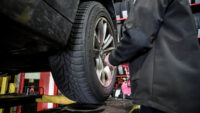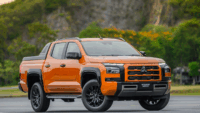The pace of change for women in the automotive industry remains ‘glacially slow’ despite progress from some manufacturers and dealer groups.
That’s the view of Auto Trader’s editorial director, Erin Baker, who recently appeared on Car Dealer Live. Speaking to James Batchelor, Baker said although there are signs of improvement, many of the conversations around gender equality in the motor trade have barely moved on in years.
‘We’re having the same discussions and seeing the same data we were five or six years ago,’ she said in the video posted at the top of this story. ‘Roughly 20% of the automotive workforce in the UK is female, and only about 10% of board-level positions are held by women.’
Baker noted that some carmakers including Ford, are setting the pace, achieving near gender parity.
‘Lisa Brankin at Ford told me they’ve almost got a 50/50 split. Some OEMs are doing better than others, but progress across the industry as a whole is painfully slow.’
While manufacturers remain cautious due to corporate structures, Baker said dealers are leading the way.
‘Among retail groups, there’s more energy and activity. I see male and female executives at events like the Automotive 30% Club and Auto Trader’s Women in Retail lunches. There’s more participation and fresh ideas coming through.’
Despite a widespread belief that women would embrace online car buying to avoid the traditional dealership environment, Baker said most still prefer the physical experience.
‘Women still want to touch, feel, and test drive cars,’ she explained. ‘The issue isn’t that dealerships exist – it’s that too many women still find themselves patronised or ignored when they walk into one.’
She urged car dealers to make practical changes in their organisations, too.
She said: ‘Employ more women – that’s the first step. Look at flexible working to make sales roles more accessible. Ask female customers to create user-generated content about their cars; women trust women, and peer recommendations are powerful.’
On marketing, Baker called for a rethink. ‘The answer is simple: representation. Show women driving the cars, not sitting in the passenger seat. Give them a narrative, make them part of the story.’
Baker added that the shift to electric vehicles could accelerate change by focusing on sustainability, inclusivity and design over traditional performance metrics.
‘We’re selling on new values now,’ she said. ‘That, more than anything, might finally open the door for more women to enter – and lead – in this industry.’
You can watch the full interview by clicking the video at the top of this story
































